AUSTIN, Texas – Sept 21, 2023
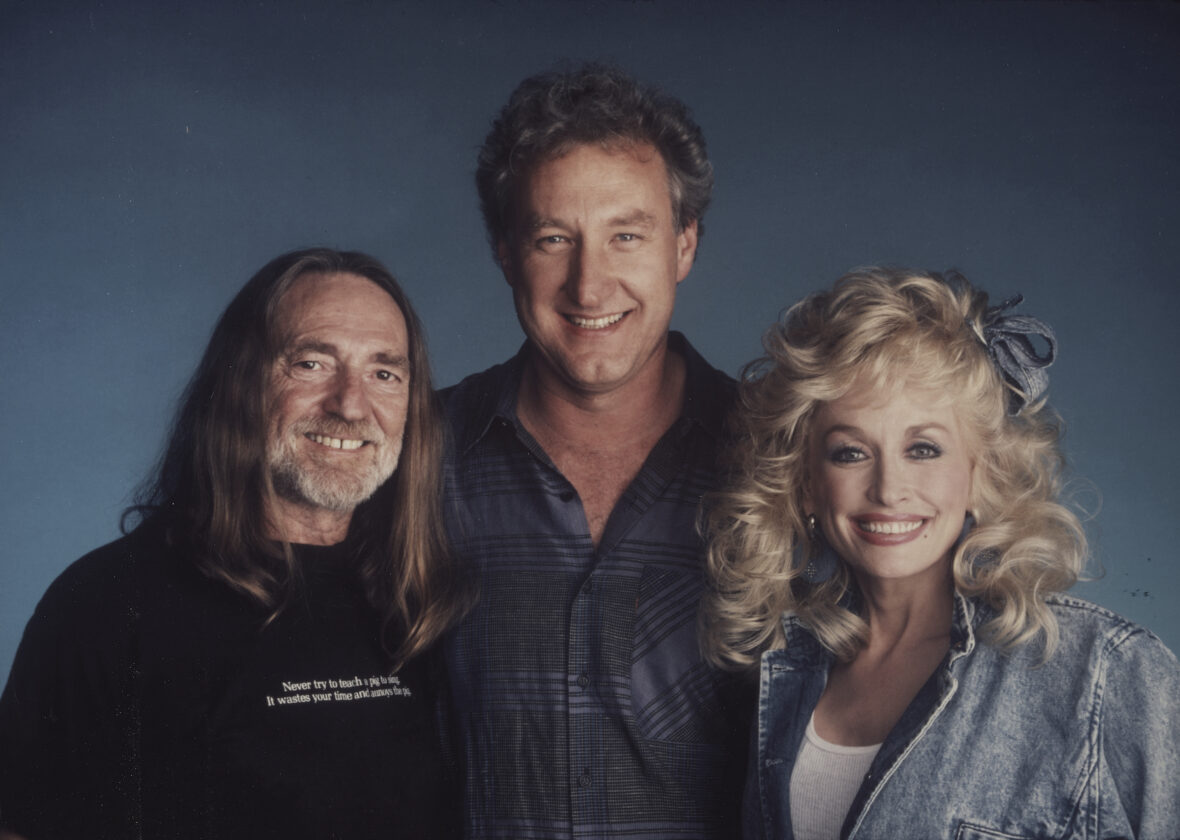
The Briscoe Center for American History at The University of Texas at Austin is pleased to announce the donation of the Don Mischer Papers, an important addition to the center’s entertainment and news media history collections.
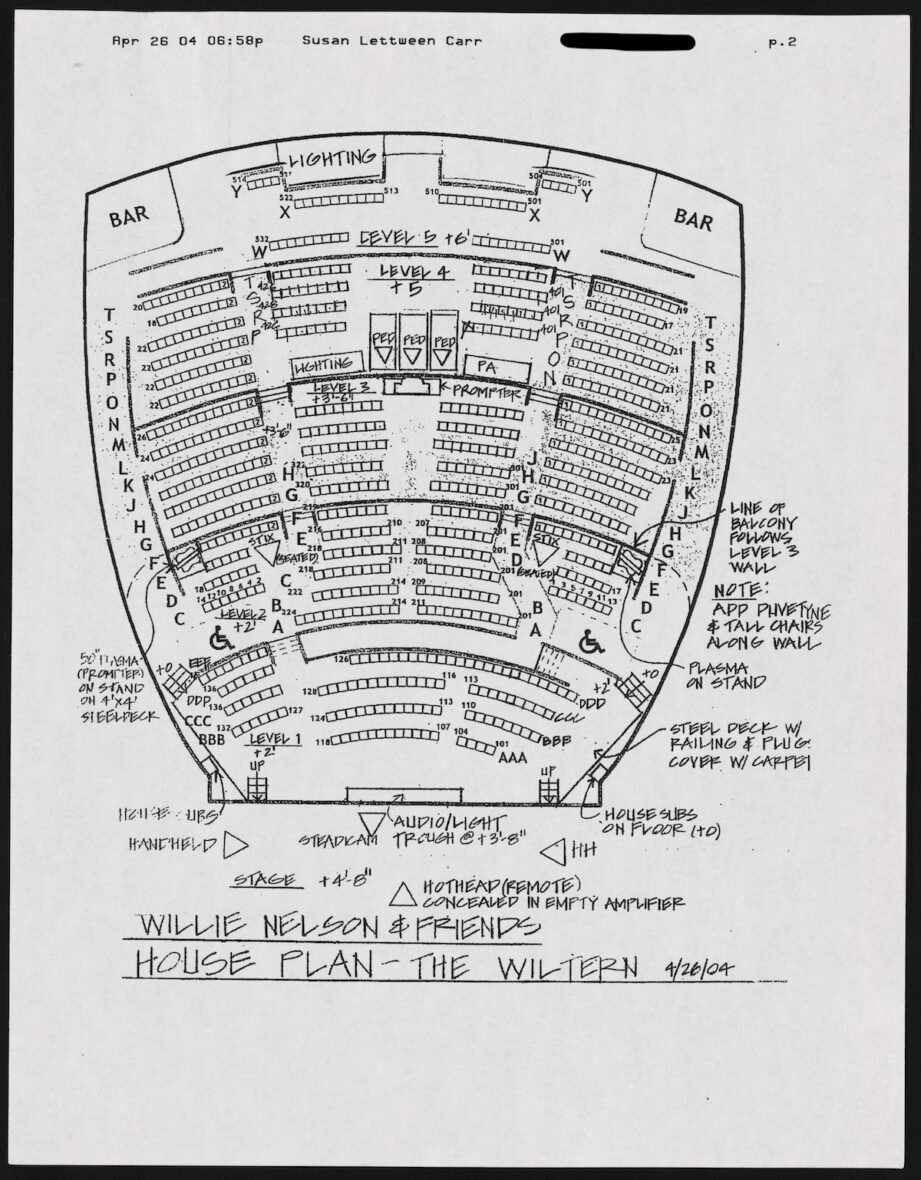
Mischer is an internationally acclaimed and award-winning producer and director of television and live events. His credits include such significant live events as: the Super Bowl Halftime Shows (Michael Jackson, Prince, the Rolling Stones, Paul McCartney, and Bruce Springsteen); the Oscars; The Obama Inaugural Concert at the Lincoln Memorial; the Opening Ceremonies of the 1996 Summer and 2002 Winter Olympic Games; the Democratic National Convention; The Kennedy Center Honors; the 100th anniversary of Carnegie Hall; Motown 25; and the Opening Ceremonies of the Smithsonian’s Museum of African American History and Culture on the National Mall in Washington.
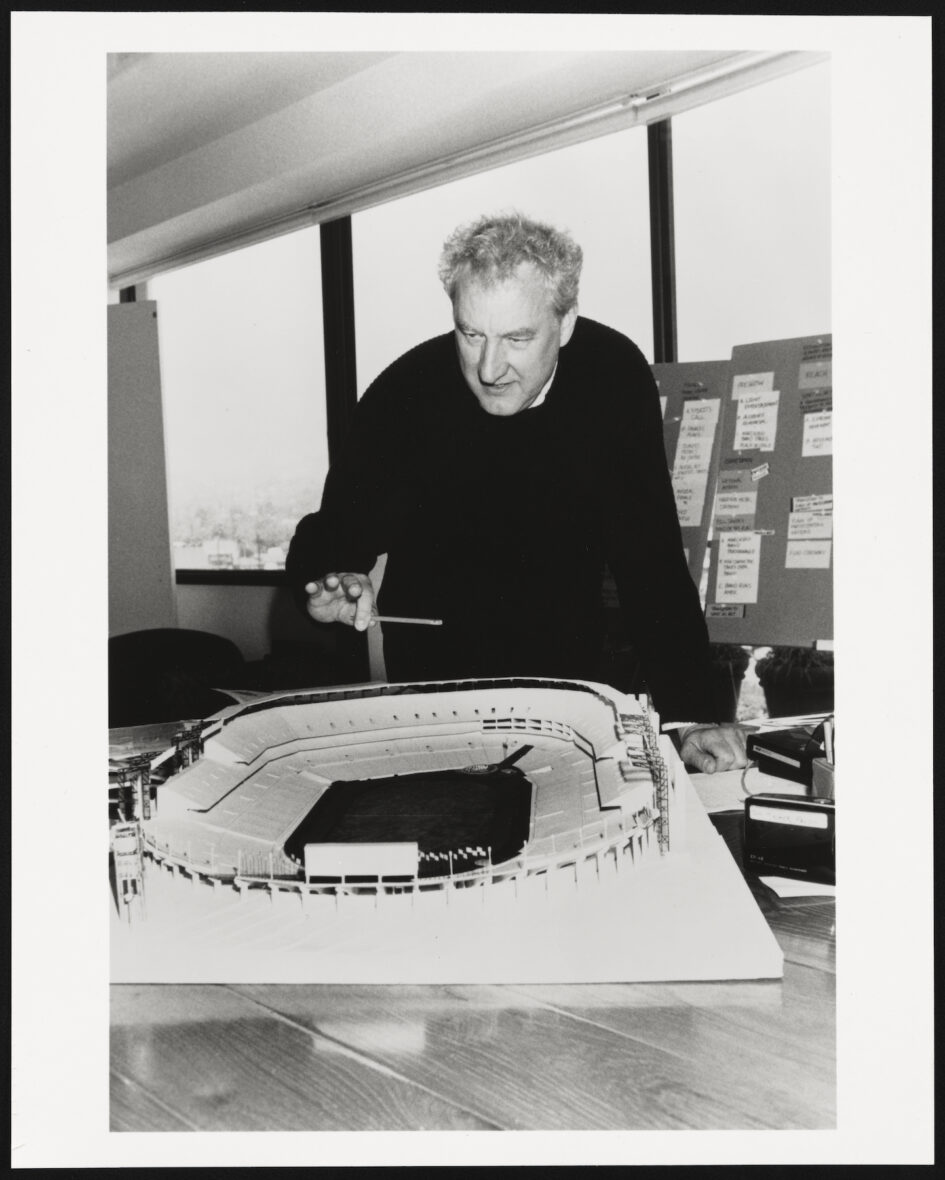
Mischer has been honored with fifteen Primetime Emmy Awards, a record ten Directors Guild of America Awards for Outstanding Directorial Achievement, two NAACP Image Awards, a Peabody Award for excellence in broadcasting, and the 2012 Norman Lear Achievement Award in Television from the Producers Guild of America. As a member of the Directors Guild of America, he has served four terms on the National Board, and in 2019 received the DGA’s Lifetime Achievement Award (usually given to motion picture Directors), only the fourth such award ever given for television direction. On December 11, 2014, Mischer received a star on the Hollywood Walk of Fame.
A native of San Antonio, he holds a Master of Arts degree from the University of Texas in Austin.
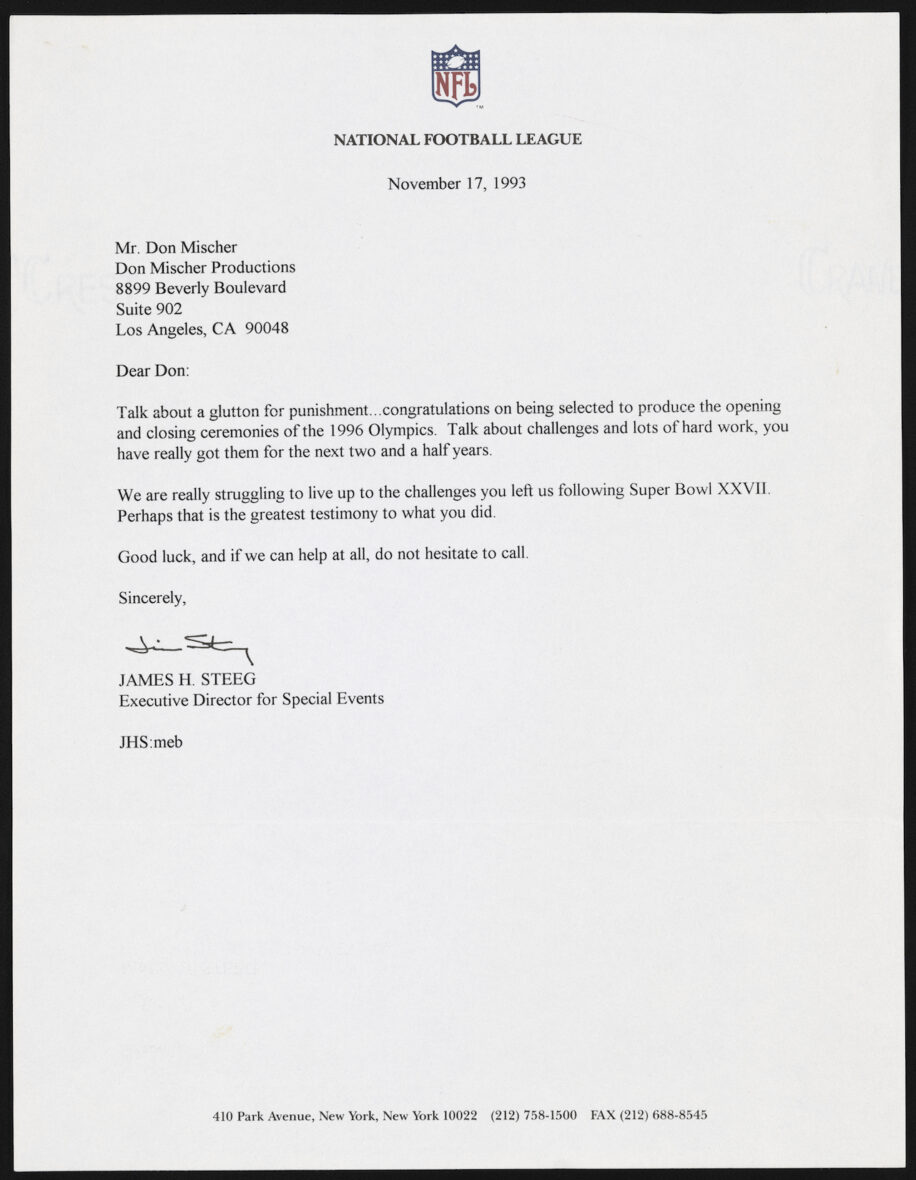
“We are deeply grateful that Don has chosen to donate his papers to the center, which will provide future researchers with rich source material on the business of entertainment,” said Dr. Don Carleton, executive director of the Briscoe Center. “His career encompasses some of the most important events of our time and features the biggest names in entertainment. The complexity of those productions and, more importantly, Mischer’s talent for creating enduring, emotional, meaningful events are preserved in this collection.”
“Working at PBS channel 9 KLRN, in the shadow of the famous Texas tower, I was able to learn the craft of Television from the ground up – pulling cable, painting scenery, hanging lights, running camera. “My life’s work has been about producing moments of excitement, meaning, and connection for audiences around the world,” said Mischer. “In donating my archives to the Briscoe Center, my hope is to provide a better understanding of how we bring these moments to life. And, as a proud UT Austin graduate, I am thrilled to have my collection at the center, where I hope it will inspire and inform students and historians alike.”
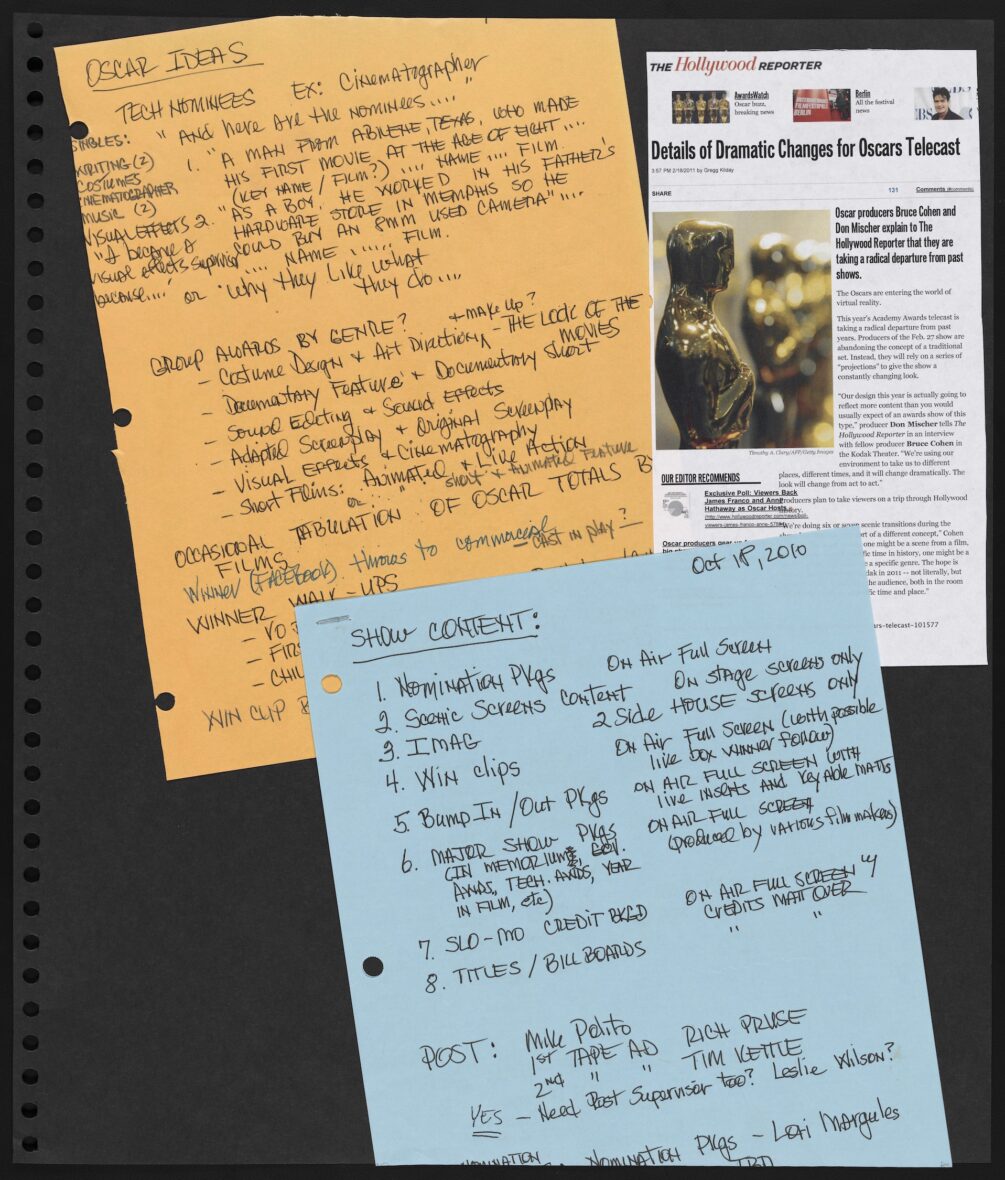
The Mischer Papers include 55 shooting scripts, production notes and materials, correspondence, Emmys and Director’s Guild of America Awards among many other trophies, articles, photographs, and ephemera documenting Mischer’s career over six decades. Mischer added, “The archives also include dozens of original show Masters for students to study if they are so inclined. I hope my archives will inspire and help the future generations to do the same.”
The materials provide insights into the creative and technical aspects of televised events, as well as Mischer’s relationships with iconic figures in music and entertainment. The collection also includes extensive audiovisual materials representing his most significant productions.
The Mischer Papers join those of other notable broadcasters and entertainers whose papers are part of the Briscoe Center’s collections. The papers are being processed and are closed to research at this time.
Media contact:
Erin Purdy
P: 512-947-7774
E: erin.purdy@austin.utexas.edu
About the Briscoe Center
As one of the leading historical research centers in the United States, the Briscoe Center’s essential purpose is to collect and preserve primary source material documenting American history for use in teaching and research. The center’s archives, libraries, museums and historical buildings are part of The University of Texas at Austin’s commitment to collecting, preserving and making available the evidence of the past. The center fosters public exploration of history through research services, exhibits, books, public programs and digital humanities projects inspired by archival holdings.


